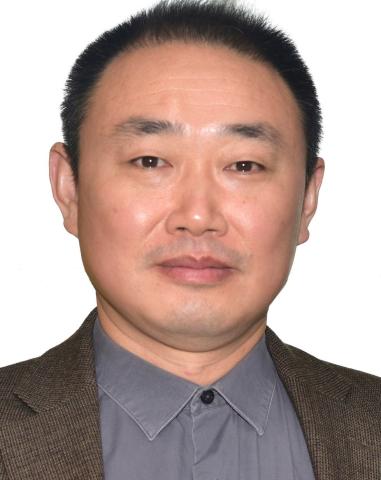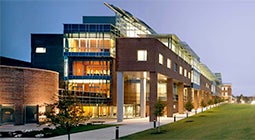
Dr. Xiaoming (Shawn) He
Multiscale Engineering Strategies for Combating Cancer Metastasis
Wednesday, October 18th
3:00 pm – 4:00 pm
Location: CBIS Auditorium
Abstract: Cancer is the 2nd leading cause of death globally and cancer metastasis is the culprit of more than 90% of cancer-related deaths. The latter is because there is no cure for cancer in the clinic once it becomes metastatic. For metastasis to occur, cancer cells must detach from primary tumor, enter blood circulation (and are called circulating tumor cells, AKA, CTCs), and extravasate into a distant organ. Although a lot of work has been published to capture the CTCs using a specific marker (e.g., EpCAM) and a few recent studies have cultured/grown the CTCs up in vitro for further analysis to develop personalized therapeutic strategy for cancer, these studies largely miss the CTC heterogeneity and CTCs from only a very small percentage (less than ~15% even for late-stage cancer) of cancer patients could be cultured/grown up in vitro for further use. In this talk, I will start by covering our recent findings on how capturing the CTC heterogeneity can greatly enhance their in vitro culturability. With a novel bioinspired 1-cell culture approach enabled by microfluidic fabrication of ONE single cell-laden core-shell hydrogel microcapsules, we further demonstrated that only ~1% of the heterogeneous CTCs can lead to metastasis. These metastatic CTCs are invaluable for understanding and treating cancer metastasis in a patient-specific way. I will conclude my talk by introducing a novel cold-responsive nanotechnology-enabled in situ cryoimmune engineering (ICIE) strategy to turn the tumor microenvironment from immunologically cold (i.e., immunosuppressive) into hot (i.e., immunoactive against cancer), to destroy not only primary but also metastatic tumors for minimizing cancer-related mortality.
Bio: Xiaoming (Shawn) He is a Professor of Bioengineering at the University of Maryland, College Park, MD. He obtained his Ph.D. degree in Mechanical Engineering in 2004 from the University of Minnesota-Twin Cities and conducted postdoctoral training from 2004-2007 at Harvard Medical School and Massachusetts General Hospital, Boston, MA. He was an Assistant Professor at the University of South Carolina from 2007-2011, and Associate Professor and Full Professor at the Ohio State University from 2011-2017. His current research is focused on developing micro, nano, and quantum-scale biomaterials and devices to engineer totipotent, pluripotent, and multipotent stem cells; immune cells; and circulating tumor cells (CTCs), for the treatment and early detection of various diseases including but not limited to cancer, infertility, cardiovascular diseases, diabetes, and neurological disorders. His research has been funded by grants with him as the PI from various private foundations like the American Cancer Society (ACS) and government agencies like the NSF and NIH (8 R01s), including the ACS Research Scholar Grant and the NCI Innovative Research in Cancer Nanotechnology (IRCN) Grant. He has published >145 peer-reviewed journal articles in high-ranking journals including Nature Nanotechnology, Nature Biomedical Engineering, and Nature Communications, together with one book and four book chapters. He is the Editor-in-Chief elect of the American Society of Mechanical Engineers (ASME) Journal of Medical Devices. He served as the Chair of the ASME Biotransport Committee, and has been an associate editor or editorial board member of five different journals. He is a fellow of the ASME and the American Institute of Medical and Biological Engineering (AIMBE).
